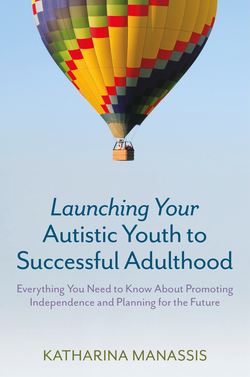Читать книгу Launching Your Autistic Youth to Successful Adulthood - Katharina Manassis - Страница 10
На сайте Литреса книга снята с продажи.
The myth that it’s easy for the high functioning
ОглавлениеYou would think that higher intelligence and higher functioning would result in an easier transition to adulthood than lower intelligence and lower functioning. If your youth is higher functioning this idea may, unfortunately, represent wishful thinking. Surprisingly, adults with ASD without an intellectual disability are three times more likely to have no daytime activities compared with adults with ASD who have an intellectual disability (Taylor and Seltzer 2011b). Whether this is due to a lack of services for these youth, adult expectations that they find their own activities, exclusion from activities due to stigma, the fact that they are more aware of their own problems than lower-functioning youth (which may be discouraging), or a combination of these factors is unclear. What is abundantly clear is that intelligent youth are not immune to transitional problems, and everyone on the autism spectrum needs support when facing adulthood.
Robert, for example, is verbal and has no intellectual disability, so he might be considered high functioning. However, he loses his words without regular social contact. He is able to do some mainstream schooling with assistance, but cannot work at college level. Because of his IQ, people may expect him to be more competent in his day-to-day activities than he really is. Robert’s father, for example, thought he just needed diligence and motivation to get a job. If your youth is at the higher-functioning end of the autism spectrum, you may have encountered people with this attitude. In fact, Robert required adult accompaniment to manage even his short cooperative education placement. Without it, he might have had difficulty finding the store, knowing what to do with himself during breaks, or responding appropriately to customer questions. Moreover, Robert’s difficulties with social behavior would place him at a great disadvantage when attending interviews for competitive employment.
Even an autistic individual with higher intelligence than Robert can struggle with pursuing educational or vocational opportunities because of impairments in socialization or other aspects of daily functioning. Deficits in planning abilities, impulse control, time management, and other organizational abilities (collectively called “executive functions”) are also common in people on the autism spectrum who are considered high functioning. If your youth has these deficits, it may be hard for them to cope with daily life despite high intelligence. All of these deficits can make the transition to adult life very difficult for autistic individuals who are verbal and do not have an intellectual disability.
